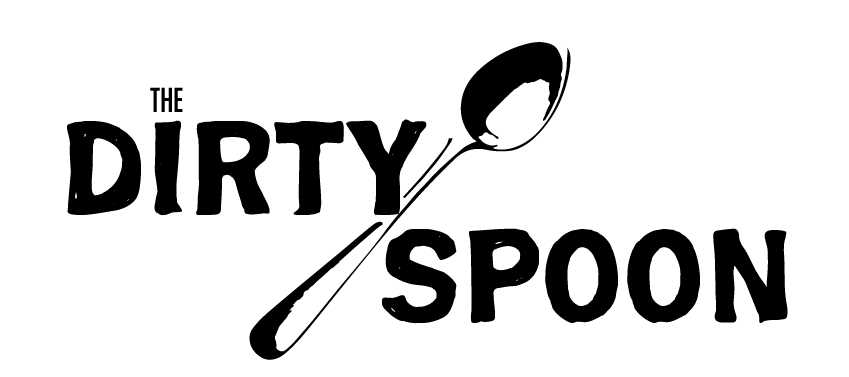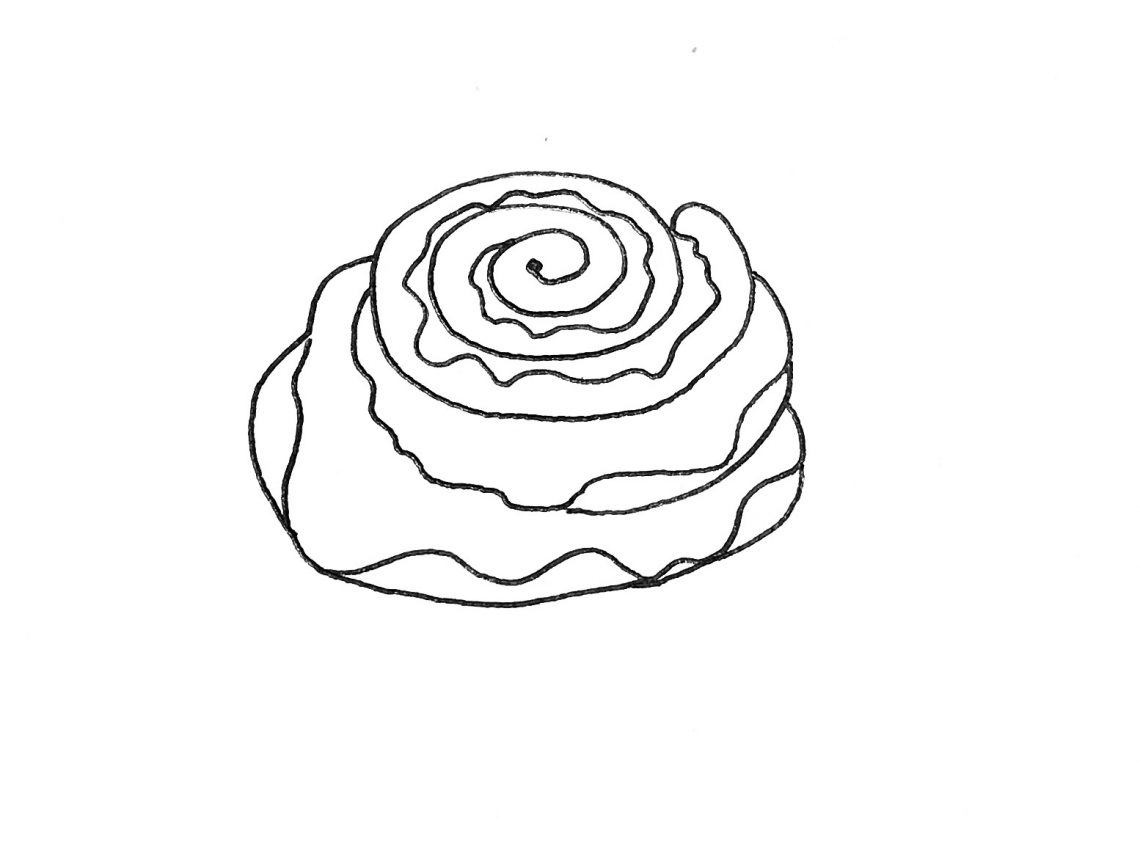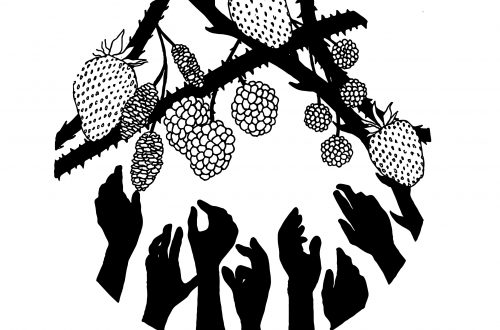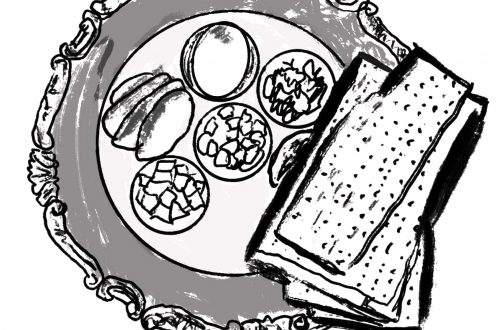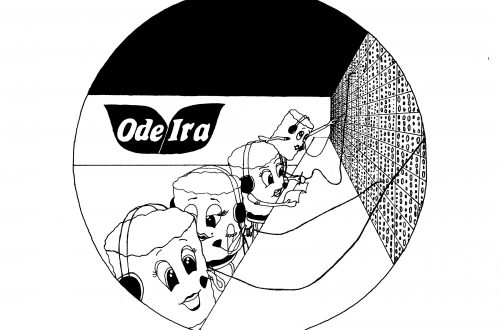by Anna Nguyen
Anna’s piece, “The Bread Did Not Rise,” also appears in episode 21 of The Dirty Spoon Radio Hour.
Cinnamon Rolls
I don’t often talk to my neighbor. He lives downstairs and we make conversation whenever I run into him. He’s usually at work, and doesn’t return until six or seven in the evening. On many weekends, he drives to visit family in New York.
But for the last two months, he’s been working from home. I hear him talk on the phone throughout the day. One night I had made some cinnamon rolls. As part of a neighborly custom, we’d text our neighbor and ask if he wanted some baked goods. He seldomly declined.
I took a couple downstairs. I hadn’t talked to him since the governor had declared a state of emergency in Massachusetts on March 10.
He opened the door, revealing only his kitchen space as I peered in.
“I just made these, with cream cheese frosting,” I said, handing over two warm rolls wrapped in aluminum foil. This gesture was a bit odd, as I was trying to maintain a generous distance between us. “I…tried very hard to be cleaner than usual…I washed my hands often,” I said slowly, trying to assure him.
He laughed. We both asked each other how’d we been doing. He called his family often, he said. I told him my mother’s trip was canceled at the last minute.
I headed back upstairs.
“If you guys need anything, let me know,” he called out.
“You let us know as well,” I echoed.
Later, as I took my first bite I found the texture of the roll odd. It was a bit too dense, perhaps a bit dry, even though I had underbaked them. After a moment, I asked my partner, “does this taste odd to you?”
He shrugged.
“Maybe the flour isn’t good,” he said. He had finished his roll. “Or maybe the yeast is old.”
Our yeast was purchased in Montreal. We had brought it when we relocated to Massachusetts. I think I purchased the 113-gram jar because I had made cinnamon rolls for a friend for Christmas. We’ve used it plenty of times since then, but it’s a huge jar. It’s been living in the refrigerator for the last four months.
The next day, when I saw our neighbor outside, I apologized for the disappointing rolls. Maybe it was the brand of flour or the yeast was too old. I repeated my partner’s words. He gave me a quizzical look.
“I thought they were delicious,” he said, almost in awe.
“I’ve made better ones before,” I mumbled, almost to myself. Louder, I said, “I’ll make another batch. Hopefully they’ll be better.”
By that time, a month in our quarantined lives, the grocery stores had been out of yeast for weeks. I occasionally was lucky enough to grab the last bag of flour, but yeast was nowhere to be seen.
Cinnamon-Raisin Bread
I brought an extra loaf of cinnamon-raisin bread with me to Pho O-Sha. A week ago, when I picked up takeout I had scheduled an interview with an employee to discuss her experiences working at a restaurant for a research project. On the very far left of the dining room, four tables were pushed aside. Four sheets of different neon-colored paper were taped on the top of each table, designating four delivery services in hand-written block letters. All four tables were empty.
I walked up to the middle of the room. Two long tables were pushed together to indicate a closure between the front-of-house employee and the customer. There was even a printed sign of two people and a measured space of two meters apart.
She peeked her head from the corner. She must have been in the kitchen.
“Hi!” I greeted, quickly sliding the flower-printed mask down to my chin. “Do you remember me?” Neither of us had given our names when we made the informal interview date. She told me just to swing by.
“Yes, of course,” she answered through her own mask. She came closer to the table set-up. I covered my mouth and nose again.
“I made a cinnamon-raisin bread,” I said, handing it to her. The recipe had yielded two loaves. “If you want it. You can share with the other employees here.” My partner had asked what I would do if she declined the bread. I told him I would just take it back home.
She looked down at the aluminum-wrapped gift.
“I cleaned my hands often,” I volunteered, suddenly feeling foolish that I hadn’t even asked if she or her co-workers had even wanted bread. “I’m not sick, so I think it’s okay…”
“Where did you find yeast?” she asked, looking up. “I make bread, too, but I haven’t been able to find yeast anywhere.”
“I had some before the pandemic,” I said. “I haven’t had to purchase any yet. But I don’t think the bread rose enough. It may have been too cold in the kitchen or the yeast is not good.”
She shook her head.
“I’m sure it’ll be delicious,” she said. “Thank you so much!” Her hands were wrapped protectively around the loaf.
We chatted for about thirty minutes, sometimes with masks on or at a safe distance when we couldn’t hear each other. At the end, we exchanged phone numbers and names. Mali suggested an exchange of baked goods. She also enjoyed baking and wanted to share some of her treats.
Sourdough bread
About a week after the interview, Mali texted and asked if I could come over to pick up her coffee cake. (“It’s real coffee cake. Lol. Not American version,” she wrote.) My partner was having difficulty with the dough. It didn’t rise very much, and it had been resting in the blue Creuset for a few extra hours
“Can we drive over in an hour?” I texted. “The bread is not rising.”
“No problem,” she answered.
By four thirty, the bread was finally out of the oven.
“It’s not very pretty,” my partner remarked, looking at it critically. It did look smaller and denser than his previous ones. He wrapped it in a towel and placed the warm bread in a basket. We drove ten minutes to her home. Her home was so close, we could have walked.
Before I could put on my black cloth mask, Mali approached the car. She was also wearing a mask. I opened the car door, and she carefully presented a beautifully decorated chocolate cake in a plastic cake carrier. She had piped the coffee cream and caramel icing into little rosettes around the generous topping of almonds.
“This is stunning,” I said, my eyes big. I had never made a cake so beautiful or so well. I handed it to my partner, who waved at Mali. He had seen her a few times, when he picked up takeout dinners. I gave her the still warm bread.
“I hope you enjoy it,” I said. “It didn’t rise very well.” I was being redundant at this point.
“It’ll be fine,” Mali responded good-naturedly. “We’ll see each other soon!”
We waved our goodbyes.
Sweet Lemon Rolls
I made Yossy Arefi’s lemon rolls, a recipe she had shared on the Instagram stories for NYT Cooking. I had zested and squeezed the juice out of an aging lemon and placed the small containers in the refrigerator. It had been a few days. I had waited to try the recipe because I didn’t have confectioners sugar. There was no need to go to the grocery store for one item.
The zest looked a bit dehydrated, and I didn’t have nearly enough of lemon juice for the required amount. But I made the rolls anyway. As I measured seven grams of yeast, I saw that we were almost out. We had about a couple of grams left.
Our neighbor had finally returned. He had asked us to take in his mail for a few days. My partner texted him, we waited, and then I went downstairs.
“I’ve never made this recipe before,” I warned as I gave two rolls to him. My partner had given him the corner pieces, which had bloomed more and looked more beautiful. The ones in the middle did not seem to rise as much. “Did you go see family?”
“Yeah, I went to see my sister in the suburbs,” he said. “I just had to get out for a bit.”
That night, we chatted for a bit longer. We revealed that each of us had a friend or family who had tested positive for COVID. They were people we haven’t seen since the state of emergency. Both of us tried to say comforting things, but in our uncertainty we ended up saying nothing.
Custom illustrations by Corinne Pease.

About Anna Nguyen
Born and raised in Fayetteville, Arkansas, Anna Nguyen is currently a doctoral student at L’institut national de la recherche scientifique (INRS) in Montreal, Canada. She examines literary and technoscientific representations of food in society. Her academic and personal essays reflect a core interest in how we communicate our values for science and technology using food as an everyday metaphor. Some of her work can be found on www.ilostmyappetite.com.
